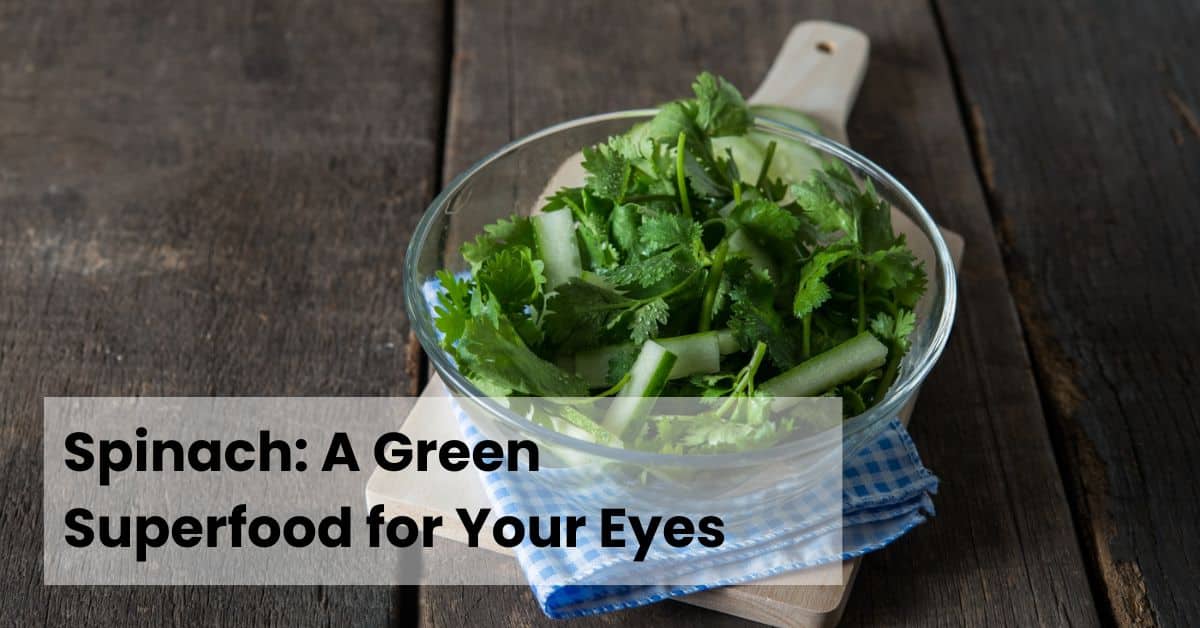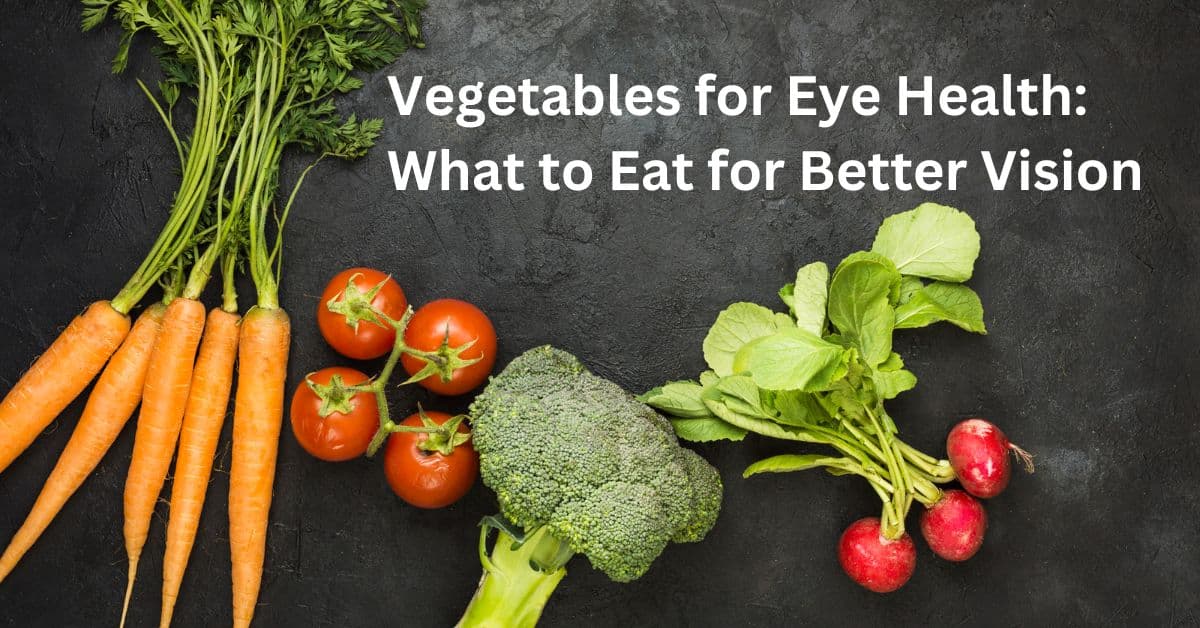Maintaining optimal eye health is crucial for a vibrant, active life. One of the best ways to support your vision is through your diet, especially by including vegetables that are known for their eye-boosting properties. In this blog post, we’ll explore the top vegetables for eye health and how incorporating them into your meals can lead to better vision and overall eye wellness.
Carrots: Boost Your Vision with Beta-Carotene
Carrots are renowned for their positive effects on eye health. It also helps keep the retina and cornea healthy. Consuming carrots regularly can help reduce the risk of age-related macular degeneration (AMD) and cataracts.
How to Add Carrots to Your Diet
- Enjoy raw carrots as a crunchy snack.
- Add grated carrots to salads for a sweet crunch.
- Roast carrots with a touch of olive oil and your favorite herbs.
Spinach: A Green Superfood for Your Eyes
Spinach is packed with lutein and zeaxanthin, two antioxidants that are crucial for eye health. These compounds help protect the retina from harmful light and prevent oxidative damage that can lead to vision problems. Spinach also contains vitamin C, which supports the health of blood vessels in the eyes and helps prevent cataracts.
Ways to Enjoy Spinach
- Toss fresh spinach into salads or smoothies.
- Blend spinach into soups or pasta sauces for added nutrition.

Sweet Potatoes: A Tasty Source of Vitamin A
Sweet potatoes are not only delicious but also rich in beta-carotene, making them a great source of vitamin A. This nutrient is vital for maintaining healthy vision and can help prevent eye diseases. Sweet potatoes also contain vitamin C, which supports overall eye health and strengthens blood vessels in the eyes.
How to Incorporate Sweet Potatoes
- Bake sweet potato fries or cubes for a healthy snack.
- Mash sweet potatoes for a comforting side dish.
Kale: A Nutrient-Rich Vegetable for Eye Protection
Kale is a powerhouse of nutrients, including lutein and zeaxanthin, which are essential for protecting your eyes from damage caused by light and oxidative stress. Kale also contains vitamin C, which supports the health of the eye’s blood vessels and helps reduce the risk of eye diseases.
How to Use Kale in Your Meals
- Add chopped kale to salads for a nutrient boost.
- Blend kale into smoothies for a green, healthy drink.
Bell Peppers: Colorful Veggies with Eye Health Benefits
Bell peppers, particularly red and yellow ones, are rich in vitamin C, which is crucial for maintaining the health of the blood vessels in the eyes and preventing oxidative damage. They also contain beta-carotene, which helps support overall eye health and prevent vision problems.
Ways to Enjoy Bell Peppers
- Add sliced bell peppers to salads or stir-fries.
- Stuff bell peppers with grains, beans, and veggies.
- Enjoy raw bell peppers as a refreshing snack with hummus.
Broccoli: A Crucial Component of Eye Health
Broccoli is another excellent vegetable for eye health, packed with vitamin C and antioxidants like lutein and zeaxanthin. These nutrients help protect the eyes from harmful UV rays and oxidative damage, supporting overall eye function.
How to Incorporate Broccoli
- Steam broccoli as a nutritious side dish.
- Toss broccoli into pasta dishes or grain bowls.
- Enjoy raw broccoli with a dip or in salads.
Tips for Adding These Vegetables to Your Diet
Incorporating these eye-healthy vegetables into your diet is easier than you might think. Here are some practical tips:
Meal Planning: Plan meals around these vegetables to ensure you’re getting a variety of nutrients.
Snack Smart: Keep raw veggies like carrots, bell peppers, and celery ready for quick, nutritious snacks.
Try New Recipes: Experiment with different cooking methods, such as roasting or steaming, to keep your meals interesting and flavorful.
Smoothies and Soups: Blend leafy greens like spinach and kale into smoothies or soups for a nutrient boost.
Salads: Mix a variety of raw vegetables into your salads to maximize nutritional benefits.
Frequently Asked Questions
What Vegetables are Best for Eye Health?
Carrots, spinach, sweet potatoes, kale, bell peppers, and broccoli are best for eye health and improving vision.
How Do Spinach and Kale Benefit Eye Health?
Spinach and kale are rich in lutein and zeaxanthin, protecting eyes from damage and reducing AMD and cataract risks.
Can Sweet Potatoes and Bell Peppers Improve Vision?
Yes, sweet potatoes provide vitamin A, while bell peppers offer vitamin C, both supporting better vision and eye health.
Conclusion
Incorporating these eye-healthy vegetables into your daily diet can make a significant difference in maintaining good vision and overall eye health. From the beta-carotene in carrots to the antioxidants in spinach and kale, each vegetable offers unique benefits that contribute to better eyesight. So, start adding these colorful veggies to your meals today and take a proactive step towards healthier eyes and improved vision.

